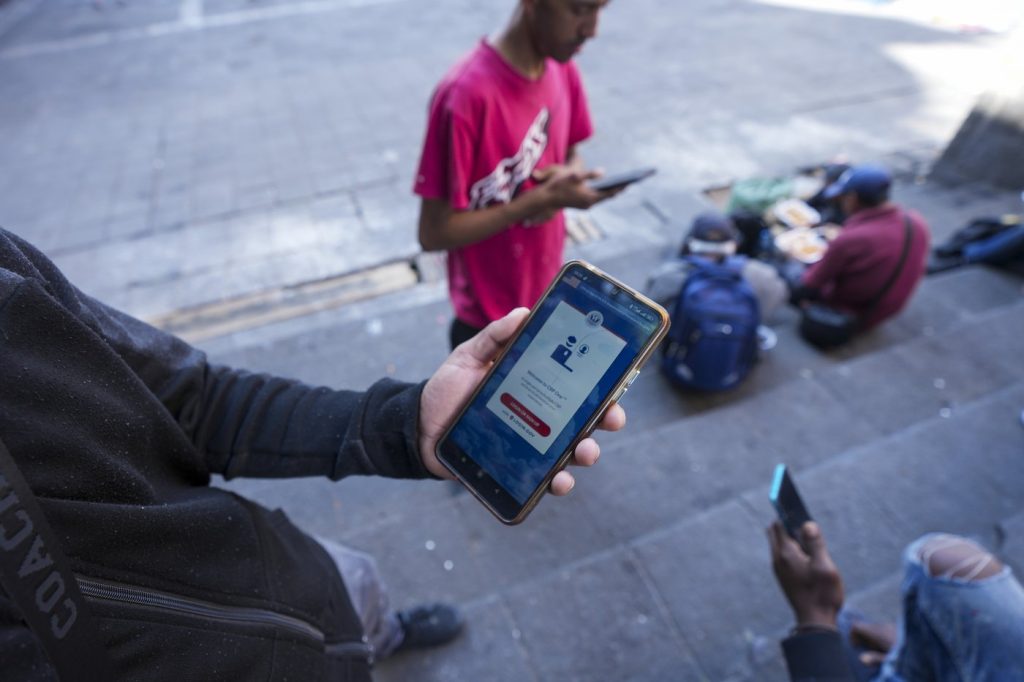MCALLEN, Texas (AP) – Migrants who were temporarily authorized to live in the United States through the Biden-era online appointment app, CBP One, have been instructed to leave the country "immediately," according to officials on Monday. The exact number of affected beneficiaries remains unclear.
Since January 2023, over 900,000 individuals have been permitted entry into the U.S. via the CBP One app. Generally, these migrants were granted up to two years of stay along with work authorization under a presidential authority known as parole.
The Department of Homeland Security (DHS) defended the decision, stating, "Canceling these paroles is a promise kept to the American people to secure our borders and protect national security." Authorities confirmed the issuance of termination notices to CBP One beneficiaries but did not disclose specific figures. Beneficiaries were encouraged to voluntarily self-deport using the same app they originally entered on, which is now referred to as CBP Home.
In a letter reviewed by the Associated Press, a Honduran family who entered the U.S. at the end of 2022 was told by the DHS, "It’s time for you to abandon the United States." Similar messages were shared on social media platforms by other recipients of the revocation letters. The nonprofit organization Al Otro Lado, which provides legal assistance to migrants, reported that some of those who received revocation notices hail from Honduras, El Salvador, and Mexico.
The CBP One app was a key component of the Biden administration's strategy to create and expand legal pathways for migrants seeking entry into the United States, an effort aimed at reducing illegal border crossings. By December 2023, a total of 936,500 individuals had gained entry via CBP One appointments at various border crossings with Mexico. This initiative marked a significant shift from the previous Trump administration, which suspended new entries into the program on its first day in office, leaving many waiting in Mexico.
Former President Donald Trump has reversed and nullified temporary status for numerous beneficiaries under Biden's policies. DHS criticized the extensive use of parole authority by the Biden administration, claiming it contributed to what they describe as the worst border crisis in U.S. history. In a recent announcement, DHS indicated that another form of parole would be revoked for 532,000 individuals from Cuba, Haiti, Nicaragua, and Venezuela who had traveled to the U.S. at their own expense with financial sponsors, effective April 24, 2024.
The Trump administration has similarly sought to terminate Temporary Protected Status (TPS) for around 600,000 Venezuelans and 500,000 Haitians. However, federal judges have temporarily halted these terminations, safeguarding approximately 350,000 Venezuelans from losing their TPS status, which is issued in 18-month increments to individuals already residing in the U.S. from countries considered unsafe for return due to natural disasters or civil unrest.
This ongoing situation highlights the complexities and challenges surrounding U.S. immigration policy and the precarious positions of migrants seeking refuge and stability. As the landscape shifts with changing administrations, the fates of countless individuals hang in the balance, underscoring the need for comprehensive immigration reform.










